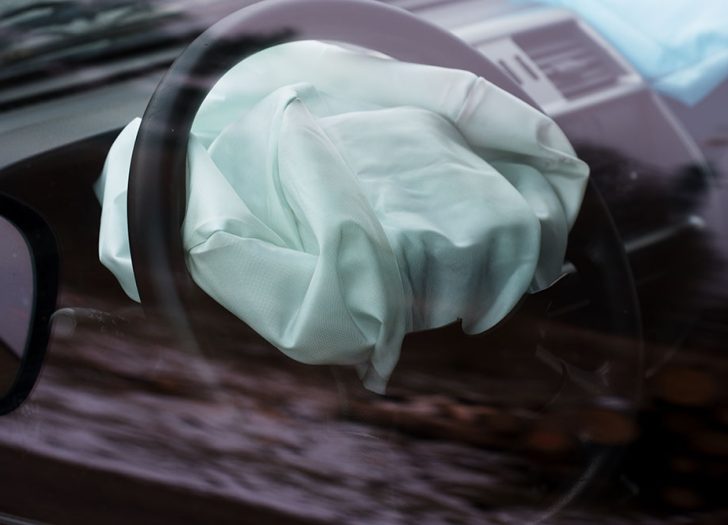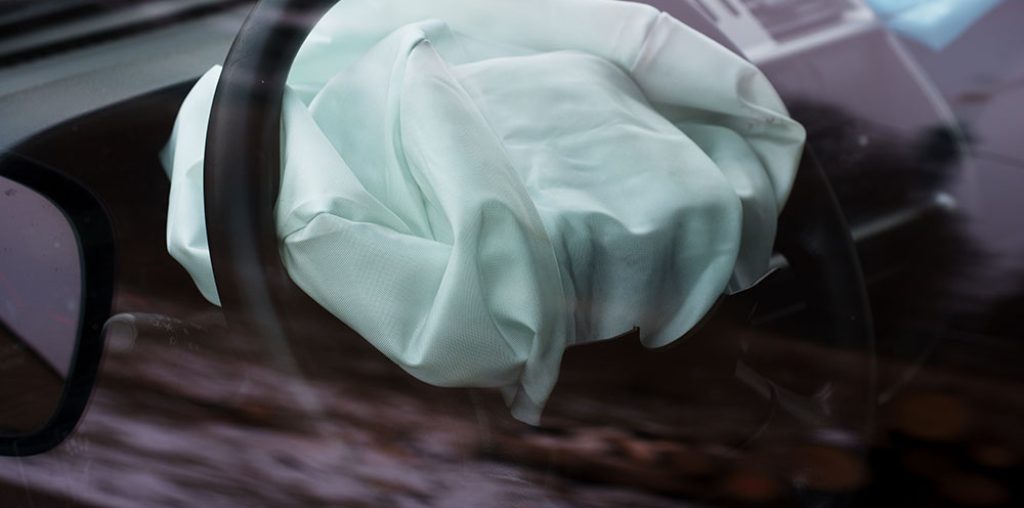 As of February 23, 2020, Massachusetts has a hands free driving law. This law bans drivers from using mobile phones or any other electronic device unless the device is in hands-free mode. Do you wonder how this law will affect you? Keep reading for a brief overview of the details from Mazow | McCullough, PC.
As of February 23, 2020, Massachusetts has a hands free driving law. This law bans drivers from using mobile phones or any other electronic device unless the device is in hands-free mode. Do you wonder how this law will affect you? Keep reading for a brief overview of the details from Mazow | McCullough, PC.
What Does the Massachusetts Hands Free Law Change for Me?
Massachusetts’ new hands free driving law provides explicit details on how drivers may use electronic devices while driving. Under the hands free cell phone law, you can only touch electronic devices to activate hands-free mode while operating a motor vehicle. You can only do so if the device is mounted to your windshield, dashboard, or center console.
You cannot hold or support your phone to enable hands-free mode or to do anything else. If your phone is mounted in a way that does not impede operation of the vehicle, you can use its GPS features. You cannot text, email, use apps, or touch your phone for any other reason. You can use voice-to-text only if the phone is mounted.
You may talk on the phone, but you can only do so in hands-free mode. For instance, if your phone connects to your vehicle’s stereo through Bluetooth, you can talk to someone. However, you cannot hold the phone up to your ear to have a conversation. You can legally wear headphones attached to your phone, but only in one ear.
The only time you can have your phone in your hand is if your vehicle is stopped and not in a public travel or bicycle lane. For example, if you pull into a parking lot or park on the side of the road, you can use the phone in your hand. However, the law bans you from using electronic devices at red lights or stop signs.
Fines Associated With the Hands-Free Law
Drivers who get caught breaking the new Massachusetts hands free law face the following penalties:
- 1st offense — $100 fine
- 2nd offense — $250 fine and a required educational program about the dangers of distracted driving
- 3rd offense — $500 fine, mandatory completion of a distracted driver course, and a surcharge on the driver’s car insurance policy
Drivers Under 18
If you are under 18, you cannot use your phone or any other electronic devices at all while you are driving. Even if the device is in hands-free mode, you cannot use it.
Which Devices Are Impacted by the Hands-Free Law?
Massachusetts’ hands-free law applies to all electronic devices. This includes e-readers, GPS systems, music players, and all other electronic devices. As indicated above, the law also explains that you can use earbuds as long as they are only in one ear.
You can use a dedicated GPS system as long as it’s mounted to your vehicle. If you have the system in your hand or in your lap, you cannot legally use it. If you have an iPod, you can set up your playlist and hit play before driving but cannot touch the device while driving.
In the Event of an Emergency
The hands-free law has a caveat for emergencies. If you need to call 911, you can have your phone in your hand, but ideally, you should try to pull over before making the call. First responders are also allowed to use cell phones with their hands as needed to deal with emergencies and do their jobs.
Research Supporting the Hands-Free Cell Phone Law
While drafting this law, Massachusetts legislators took into account research on the dangers of distracted driving. If drivers use a hand-held device, they increase their risk of crashing by 2.5 to 3 times.
Essentially, when drivers do activities that involve visual or manual demands, their reaction times slow down. They then become more likely to get in an accident. For example, if drivers are texting, they look away from the road for a significant amount of time. This greatly increases the risk of a collision.
In contrast, when drivers use a hands-free device, they are engaging in a cognitive secondary task. Research indicates that this does not increase the risk of a crash. In fact, when researchers compared drivers using a hands-free cell phone to a group of control drivers, they discovered that the cell phone users had a lower risk of being involved in an accident.
Researchers speculate that this happens for a few reasons. When drivers talk on a hands-free phone, they tend to look forward and notice things more clearly. Conversations can also reduce driver fatigue on long trips. However, research also indicates that doing multiple cognitive secondary tasks slightly increases the risk of an accident.
If you’re having a hands-free phone conversation, changing radio stations, and talking with a passenger, you are multitasking. This increases your collision risk. The risk is still negligible compared to doing anything that requires you to look at the phone in your hand.
This risk is especially high for inexperienced drivers. The law bans drivers under 18 from using devices at all while driving to ensure their focus is on the road. Young drivers in Massachusetts cannot have passengers under 18 in their cars until they have a year of driving experience.
Now that there is a hands free law Massachusetts residents must abide by, the roads should become safer. Unfortunately, however, the risk cannot be eliminated and distracted drivers still cause injuries and deaths every day.
If you or a loved one has been hurt by a distracted driver, contact Mazow | McCullough, PC. We work hard to help our clients get the justice they deserve.











